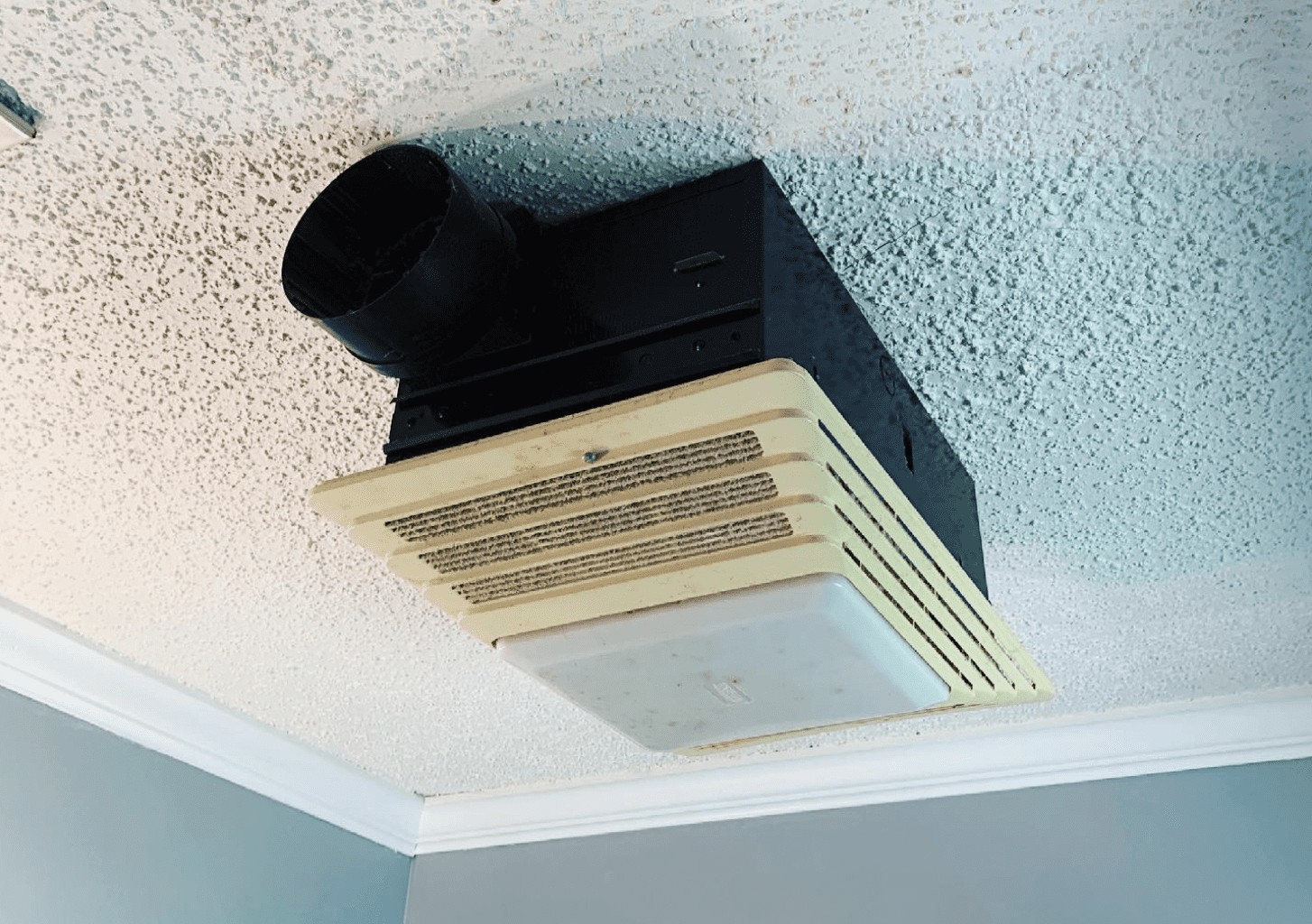Let’s be clear; home inspections are not a pass or fail activity. There are no things that fail a home inspection.
A home inspection is a top-to-bottom evaluation of a home designed to provide the buyer with a complete understanding of that home’s true condition. And while the findings of a home inspection can sometimes be significant and prove to be a dealbreaker for the buyer if not fixed or compensated, none of these are things that fail a home inspection.
The 10 Most Common Home Inspection Problems
There are lots of little things that find their way into a home inspection report. Many of these are minor issues that can be easily repaired such as chipping paint, or a cracked window. Rarely do these items cause a real estate deal to fall apart.
What can cause a buyer to walk away are the hidden and sometimes costly problems the current homeowner may be unaware of. Here are some of the most common things that fail a home inspection.
Drainage Problems
After inspecting over 5,000 homes in the Dothan, Alabama area, improper surface grading is the most common problem our inspectors encounter. To avoid potentially serious damage to your basement, slab foundation, or crawlspace, it’s important to move water away from your home.
How to prevent this home inspection fail:
It’s usually pretty easy to give water a path to move away from your home. This can be accomplished by installing a gutter system or making repairs and adjustments to an existing system.
Additionally, adding topsoil and creating a slope away from the home that drops 1″ for every foot away from the home, will provide positive drainage away from the foundation.
Electrical Wiring Troubles
The second most common problem our inspectors find here in Southeast Alabama is with the home’s electrical system. Everything from damaged receptacles and improperly installed GFCIs to missing junction boxes and exposed wiring are almost always present.
How to prevent this home inspection fail:
The best way to prevent these issues from being documented on an inspection report is to have any faulty receptacles or suspect wiring reviewed and repaired by a licensed electrician before the home is inspected.
Bad Roofing
Roof leaks caused by old or damaged asphalt shingles are a common problem. Roofing troubles can range from a few missing shingles to leaks or soft spots.
In many cases, these leaks can be easily remedied by repairing damaged shingles, fixing improper or failed flashing, or caulking the penetrations. The same is true for metal roofs. They have a much longer life but may need to have fasteners tightened or replaced from time to time to maintain the roof’s integrity.
Asphalt roofs have a life expectancy between 15 and 20 years if they are installed properly and maintained. However, if they aren’t taken care of, or the attic isn’t vented correctly, through a ridge vent for example, their life can be greatly reduced.
If our inspectors find an excessive amount of granules have washed away, or any of the shingles are brittle, broken, or missing, we will document it accordingly. If the roof has been severely neglected, it may need to be replaced entirely.
A roof replacement can cost $10,000 or more depending on the square footage, pitch, and style of the roof.
How to prevent this home inspection fail:
The best way to prevent roofing issues from appearing in an inspection report is to replace damaged shingles and recaulk around all roof penetrations such as vent pipes.
Failing Cooling Systems
Here in the Dothan area, cooling systems are much more important than heating systems. And an HVAC system that is reaching the end of its useful life can cost a new home buyer between $4,000 and $10,000 to replace.
Additionally, improperly installed systems could be costing the owner hundreds of dollars a month.
How to prevent this home inspection fail:
Having your heating and cooling system inspected and serviced once a year can help extend its life. At a minimum, always replace your filters every three months.
General Lack of Maintenance
Every previously owned home on the market will have some deferred maintenance. Everything from overgrown vegetation and stuck windows to peeled paint and cracked caulk.
How to do it in six easy steps.
However, too many of these issues can make a buyer think twice about going through with the purchase. The good news is that these items can typically be addressed by a homeowner or handyman before the home is put on the market.
How to prevent this home inspection fail:
If your paint is in rough shape, give your home a fresh coat of paint inside and out. It’s the least expensive way to improve a home’s curb appeal. While at it, trim back any overgrown vegetation and give your windows and driveway a powerwash.
Repair or replace any broken light fixtures, electrical outlets, and switches and make sure your drains are clear and faucets don’t leak.
Structural Issues
It’s not uncommon for older homes to have some sagging and swaying. What’s important to know is whether or not the floor joists, rafters, and door headers have been compromised.
Determining the extent of structural damage is not within the scope of a home inspector’s expertise. When our inspectors identify potential structural issues, we typically recommend the seller or buyer to have the property looked at by an engineer.
How to prevent this home inspection fail:
The only way to estimate the potential repair costs is through a thorough examination by a structural engineer.
Plumbing Concerns
Leaks from damaged pipes, slow drains from stopped-up sewer lines, and water heaters beyond their useful life can all show up on an inspection report.
How to prevent this home inspection fail:
The best thing a homeowner can do is perform a visual inspection before listing their home. Then have a plumber come and fix any obvious leaks, unclog any slow drains, and reseat any wobbly toilets with new wax rings.
Foundation Failure
Foundation problems are among the most expensive defects to fix. As inspectors, we are trained to look for signs of a faulty foundation including windows or doors that stick, cracks above doorways, sagging floors, and more.
How to prevent this home inspection fail:
If you notice any of the issues mentioned above, you’ll want to get a specialist to take care of them before selling the home. While not common, foundation issues are one of the top reasons why a buyer will back out of a deal.
Pest Infestations
If we see signs of termites or other damage from wood boring insects, we put it in our report. What matters most is whether or not the infestation is active and how much damage has been done.
How to prevent this home inspection fail:
If you see signs of termites or other vermin such as mice, rats, or roaches, hire a professional pest control company to inspect and treat your home before a home inspection.
Mold
Signs of mold are not difficult to detect in most cases. Musty odors give away the presence of mold, and extensive molding can be costly to remediate. Furthermore, molding usually happens because of leaky pipes and drainage damage and indicates plumbing issues within the home.
How to prevent this home inspection fail:
As we’ve mentioned, there are no such things that fail a home inspection. However, many buyers back out of purchases at the first sign of mold. Homeowners need to repair leaks and gutters and grade the ground around the home. Additionally, maintaining the right humidity levels in the home – even if you aren’t home – can help prevent mold growth.
How to Limit Things That Fail a Home Inspection?
Not all issues are as concerning as others. And there are no such things that fail a home inspection. However, some issues can prevent a buyer from getting a loan on the home or cause them to back out over concerns about the costs of repairing things.
For instance, the HUD requires all properties purchased with FHA loans to meet specific safety and security standards. Your real estate agent and the inspector will have all the information on the minimum property standards; however, there are steps you can take to increase the odds of a good home inspection.
What are some steps a homeowner can take to increase the chances of a positive home inspection?
The best thing a home seller can do is hire a licensed home inspector before putting the home on the market. The result of their visit and inspection report will show you the actual condition of your home before selling so you can choose to make repairs, adjust your price, or negotiate accordingly.
We’ve even returned after repairs were made and adjusted our report which enabled the homeowner and their agent to use the report as a positive tool for marketing the home.
You can also do some things yourself if you’re handy. Replace those smoke detectors if they are out of date, relocate downspouts away from your foundation, clear away overgrown landscaping, clear slow drains, fix leaky faucets, replace HVAC filters, and slap on a coat of paint.
What If You Don’t Agree With the Buyer’s Inspection Report?
Every item on the buyer’s home inspection report may not make sense. However, it’s up to the buyer to decide what is important to them or not. The best thing to do if you disagree with something is to ask the inspector for more clarification.
Conclusion: Ready for a Home Inspection?
Inspections can be stressful for both buyers and sellers. Taking a proactive approach and hiring an inspector is the best thing a seller can do to prevent unexpected hang-ups.
Remember, there are no things that fail a home inspection. According to the American Society of Home Inspectors (ASHI), “A professional home inspection is an examination of the current condition of a house. It is not an appraisal that determines market value. It is not a municipal inspection, which verifies local code compliance. A home inspector, therefore, will not pass or fail a house, but rather describe its physical condition and indicate what components and systems may need major repair or replacement.”
Home inspections are usually paid for by the buyer when they are purchasing a home. The role of the home inspector is to provide the buyer with a comprehensive report detailing any problems with the home—both big and small.
A buyer typically reserves the right to back out of the transaction if the home inspection fails, or they can attempt to renegotiate the price with the seller based on the cost of repairs.
A home inspector evaluates each part of a subject property looking for electrical, plumbing, mechanical, and structural issues. And some things that could be significant enough for a buyer to walk away could include anything from drainage issues in the yard to cracks in the foundation. For sellers, preparing for a home inspection can help you address some of the most common home inspection problems ahead of time.
Almost all buyers request a home inspection when they submit an offer on a house. And even though a home inspection isn’t pass or fail, meaning there are no things that fail a home inspection, many buyers end up requesting repairs or concessions after getting the inspection report back.


